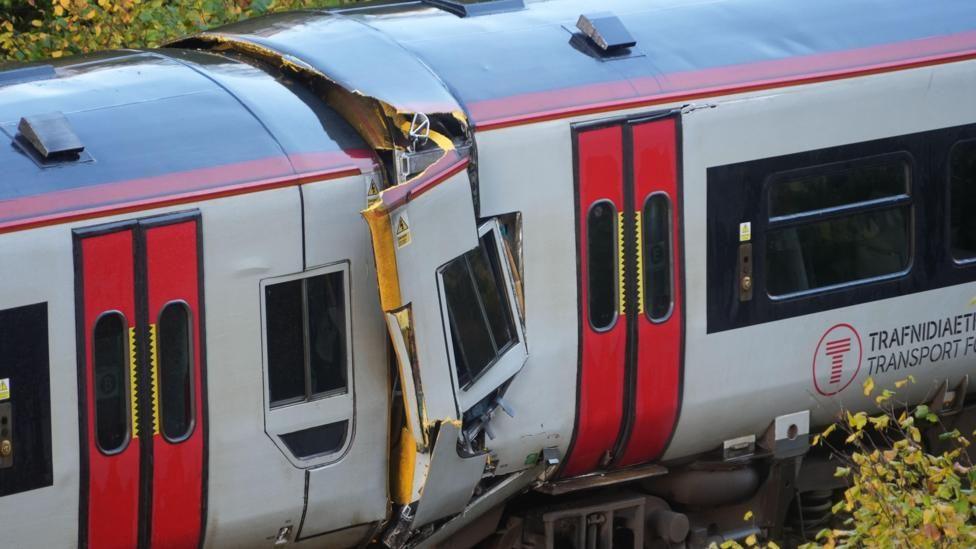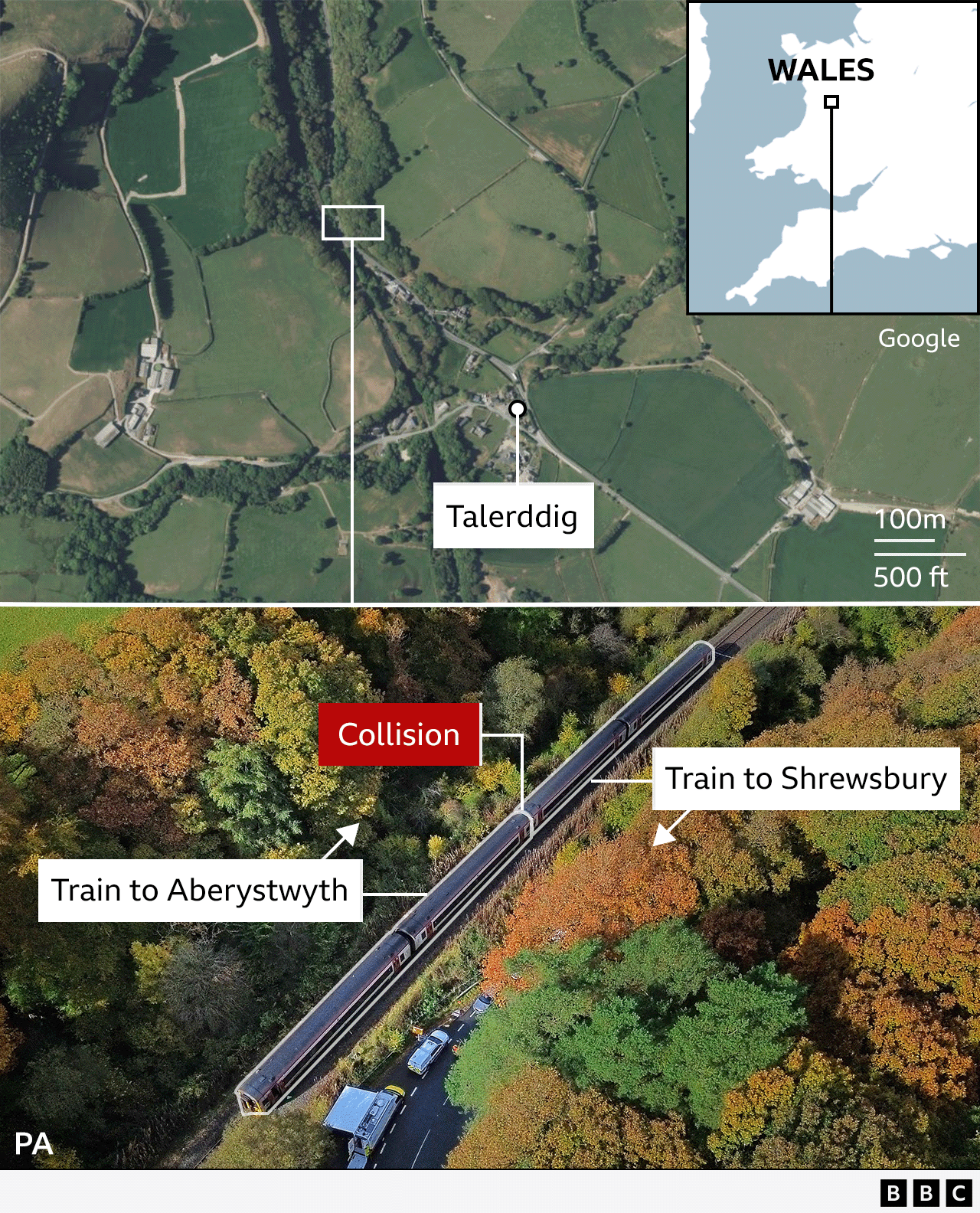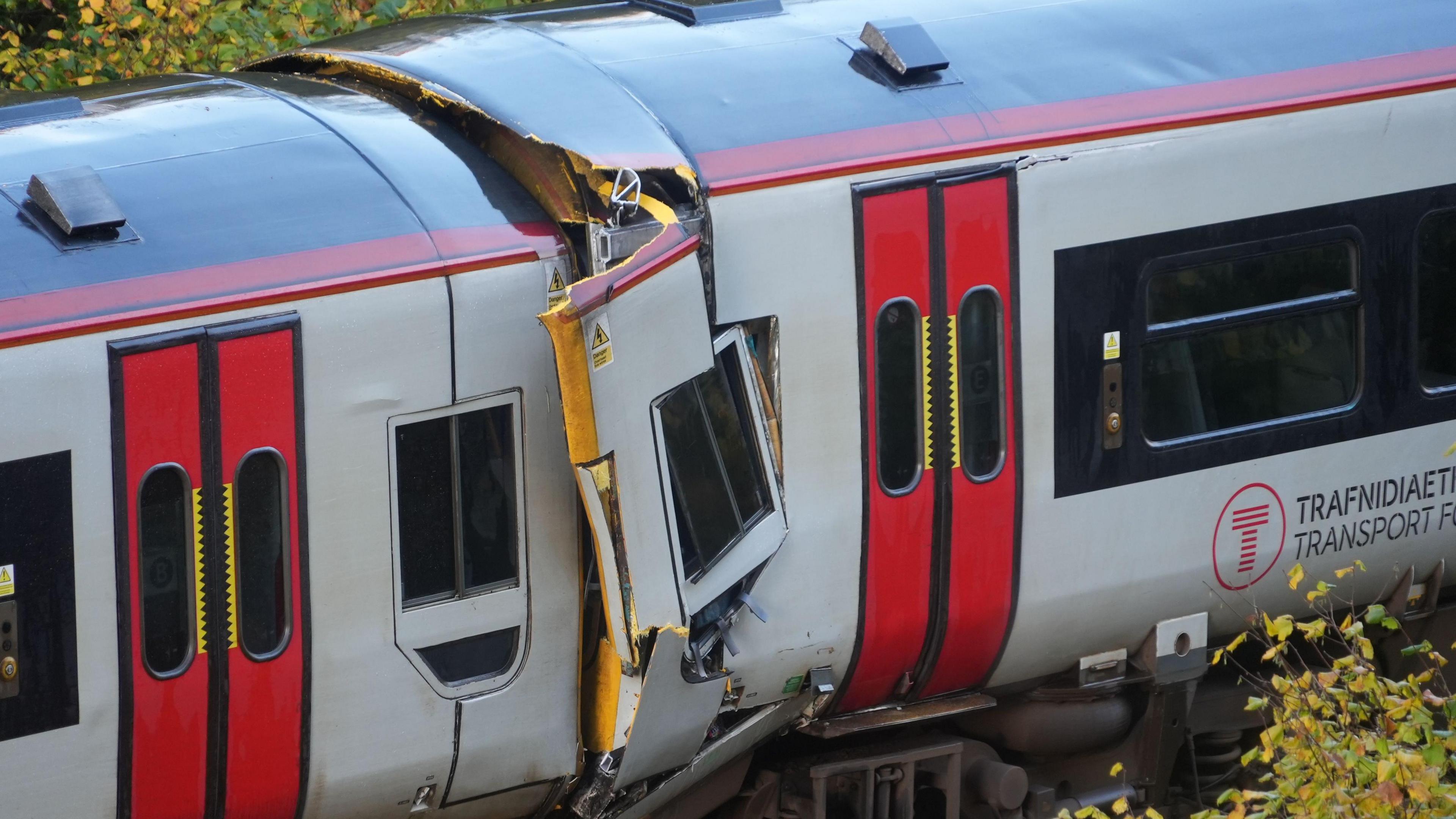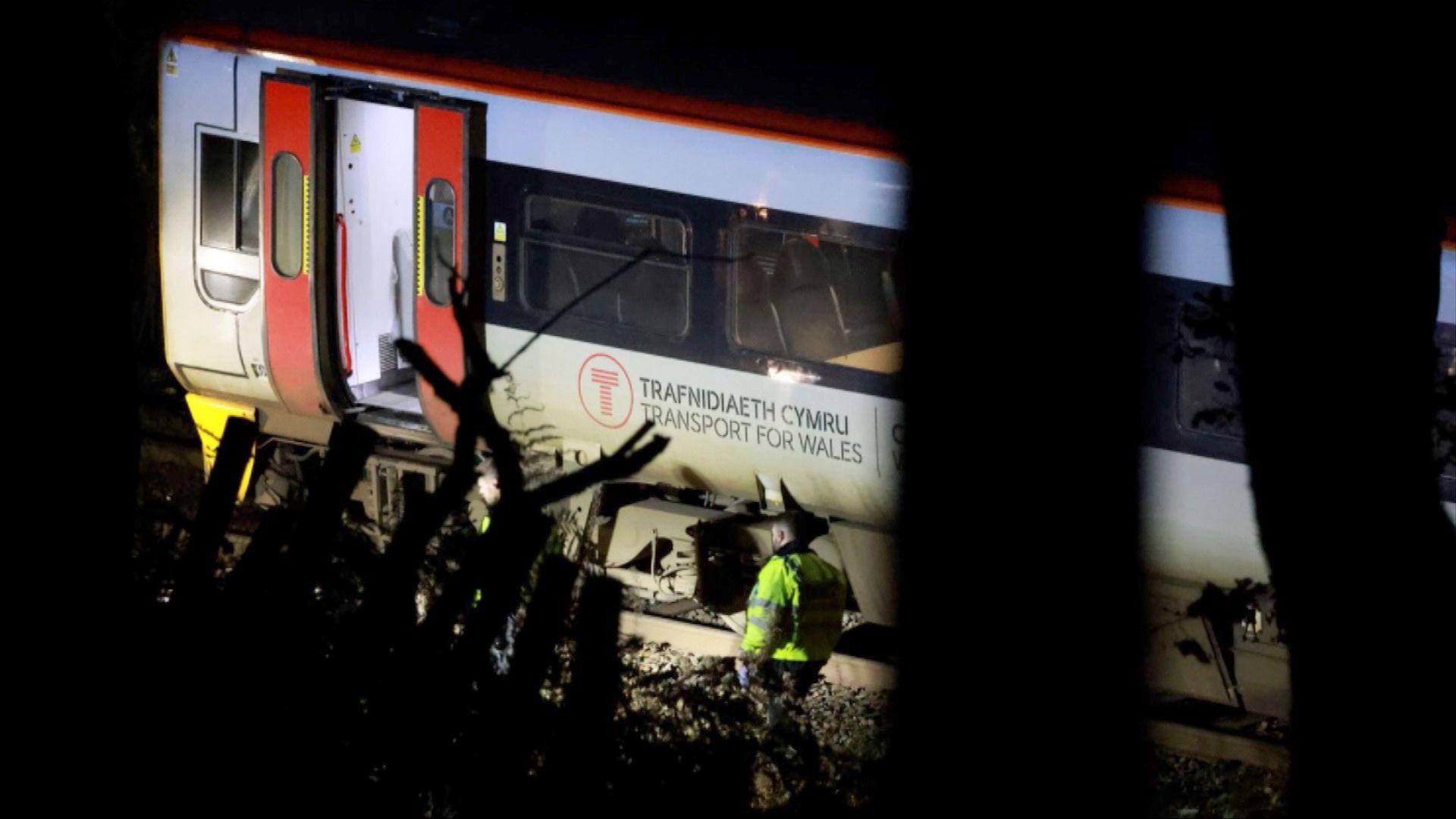Train safety system failed before fatal crash, report says

The crash happened near the village of Llanbrynmair, in Powys
- Published
A safety system designed to help a train stop failed on one of the trains involved in a fatal crash in mid Wales, investigators have revealed.
David Tudor Evans, 66, died after two trains crashed near the village of Llanbrynmair in Powys on 21 October.
It was initially said that a service from Shrewsbury to Aberystwyth hit a stationary train which was travelling from Machynlleth to Shrewsbury, however the report has revealed both were moving at the time of the collision.
The Rail Accidents and Investigations Branch (RAIB) said the 1J25 service from Shrewsbury to Aberystwyth had a blocked wheel-sliding safety system.
On board the 18:31 to Aberystwyth as it smashed into another train
- Published26 October 2024
Train passenger knocked unconscious in fatal crash
- Published22 October 2024
How common are train crashes in Wales?
- Published22 October 2024
On Tuesday, the RAIB issued an update on the investigation, and said that an automated system that helps train wheels grip tracks failed.
It said it had inspected the system, fitted to train 1J25, which automatically sprays sand via hoses when a wheel slide is detected during braking, in a bid to generate more friction.
The inspection showed these hoses on the leading vehicle of the train "were blocked and apparently unable to discharge sand".
Before the collision, analysis records an emergency brake demand being made and it remained in place until the collision.
Mr Evans, from Capel Dewi, Ceredigion, died after the crash and four others were seriously injured.
A further 11 people sustained injuries which required hospital treatment.
The RAIB added that initial analysis showed the 1J25 service from Shrewsbury to Aberystwyth was travelling between 15mph (24 km/h) and 24mph (39 km/h).
The 1S71service from Machynlleth to Shrewsbury was travelling at about 6mph (10 km/h) in the opposite direction.
The RAIB is continuing to analyse evidence relating to the collision speed, which it said remained an area of ongoing investigation.
Investigators said neither train derailed in the collision, although significant damage was caused to the leading vehicles of both trains.

David Tudor Evans, 66, was travelling on a westbound train when it crashed in mid-Wales last month
The RAIB said both trains involved were fitted with wheel slide protection systems, a similar function to anti-lock braking systems on road vehicles.
The Cambrian line is equipped with the European Rail Traffic Management System, a form of railway signalling which transmits signalling and control data directly to the train.
The railway approaching Talerddig from each direction consists of a single track, and to allow trains to pass each other there, a loop is provided.
The loop has points at each end which allow trains to enter a short length of track adjacent to the single line.
Westbound trains climb an ascending gradient to enter the loop and, on exiting, rejoin the single track as it descends towards Llanbrynmair and Machynlleth.
During the preliminary examination, RAIB said it found that the westbound train had been due to stop in the loop at Talerddig to allow eastbound train to pass.
Initial analysis of data from the on-train data recorder (OTDR) fitted to westbound train shows that the driver applied service braking to slow the train as it neared the loop at Talerddig.
Around 40 seconds after the first service brake application, the OTDR records an emergency brake demand being made and it remained in place until the collision.
OTDR data shows that wheel slide started during the service braking and was constant during emergency braking.
The westbound train then entered the loop at Talerddig. Although it slowed while passing through the loop, it did not stop before passing the block marker positioned near the exit.
The train subsequently exited the loop, rejoined the single line, and continued to travel for around 900 metres on the descending gradient, before colliding with the eastbound train.

Following Mr Evans's death, British Transport Police (BTP) apologised after a close friend accused the force of failing to support his family.
They told PA news agency that Rachel Evans, Mr Evans's wife, was "pretty much left to her own devices" after the crash.
The force issued a statement on 22 October saying "the deceased's next of kin have been informed and his family are being supported by specialist officers".
But a BTP officer actually visited the family on 23 October, PA reported.
BTP Supt Andrew Morgan said: "British Transport Police has apologised directly to the family of the deceased in relation to this statement and would like to apologise publicly for any additional suffering caused at this extremely difficult time."
Transport for Wales and Network Rail said in a joint statement that it was "fundamental" to wait for the findings of the full report.
"As investigations are currently still ongoing, we'll continue to work together with investigators to understand what happened and await the full conclusion and recommendations of the investigation."
It added that they have carried out enhanced checks to the trains and the railway line to enable the reopening of the Cambrian line later this month.
- Published30 October 2024

- Published22 October 2024

- Published22 October 2024
